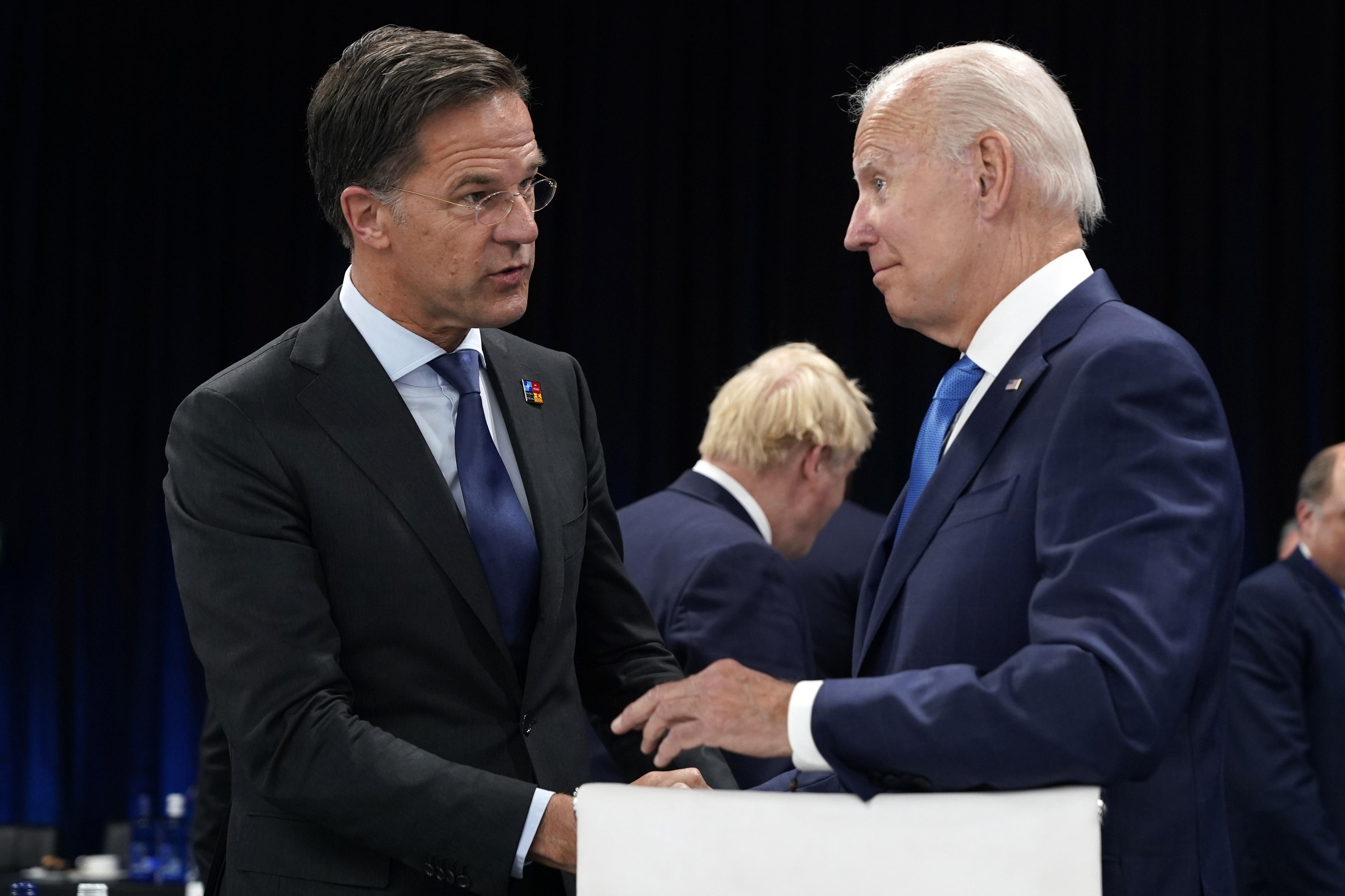
United States President Joe Biden and Dutch Prime Minister Mark Rutte have concluded a meeting at the White House, with the Russian invasion of Ukraine, protections of supply chains, and an upcoming Summit for Democracy – hosted by the two countries along with Costa Rica, South Korea and Zambia – topping the agenda.
The wide-ranging meeting on Tuesday was also planned as the US has sought to shore up allies’ support for restrictions that aim to limit China’s ability to access advanced computing chips, develop and maintain supercomputers, and make advanced semiconductors.
The Netherlands’ largest company is ASML Holding, a key supplier to semiconductor equipment makers. China has been a major client of the company.
In a statement following the meeting, the White House did not directly reference the issue, but said the two leaders discussed “the importance of secure supply chains and critical technologies to our national security and economic prosperity”.
In a series of tweets, Rutte also did not refer to discussions of export restrictions, instead focusing on the war in Ukraine.
Earlier in the day, as the two leaders sat in the Oval Office, Biden said Washington and Amsterdam were working together to “meet the challenges of China”.
Rutte, meanwhile, decried the Russian missile strike in Dnipro on Saturday that killed at least 40 people, while touting the about 2.5 billion euros ($2.7bn) Amsterdam has pledged in support of Urkaine this year. The money will be spent on military equipment, humanitarian and diplomatic efforts.
The Dutch leader also signalled his intention to follow Germany in providing US-made Patriot air-defence systems to Ukraine.
“We have the intention to join what you’re doing with Germany on the Patriots project, the air-defense system. I think that is important and we joined that,” Rutte said.
Export restrictions
Nevertheless, US export controls aimed at China loomed large over the lead up to Tuesday’s meeting.
The Biden administration has argued that the new restrictions, announced by the US Department of Commerce in October, are necessary because China can use semiconductors to create advanced military systems, including weapons of mass destruction, as well as improve the speed and accuracy of its military decision-making, planning and logistics.
During an interview on Monday, Dutch Trade Minister Liesje Schreinemacher said Amsterdam would not summarily accept the new US restrictions.
“We’ve been talking with the Americans for a long time, but they came up with new rules in October, so that changes the playing field,” Schreinemacher said on the Dutch Buitenhof television show. “So you can’t say that they’ve been pressuring us for two years and now we have to sign on the dotted line. And we won’t.”
The trade minister added that Washington had “justified worries” about an overreliance on Asia, where 80 percent of advanced chips are made, as well as the threat that the technology could support military applications.
The Dutch government has denied ASML permission since 2019 to send China its most advanced lithography machines, which design and produce semiconductors, after a pressure campaign by the administration of former US President Donald Trump.
However, the company did sell 2 billion euros ($2.1bn) of older machines to China in 2021.
ASML CEO Peter Wennink had previously said he expected the US export controls to have only a “limited impact” on the shipment of the machines.
Rutte’s visit comes after Biden last week hosted Prime Minister Fumio Kishida of Japan, another key player in semiconductor technology.
In a separate event on Tuesday, White House Indo-Pacific coordinator Kurt Campbell said Biden and Kishida had held “very productive” talks on semiconductor-related export controls during the meeting. Japan’s Ambassador to the US Koji Tomita said at the same event that both sides were looking forward to making progress on the semiconductor issue in coming weeks.







